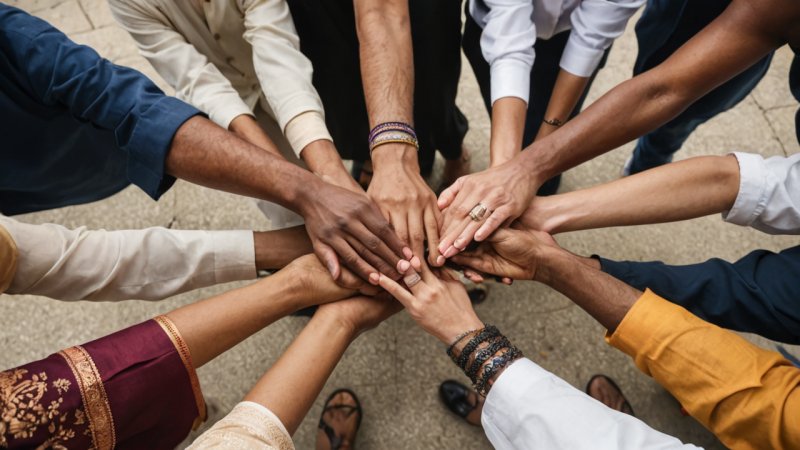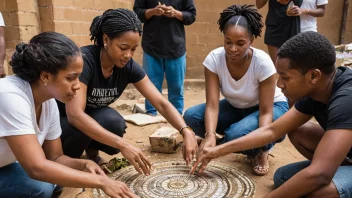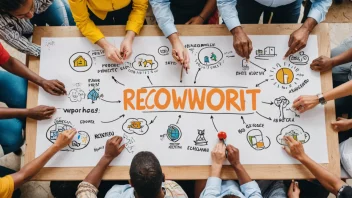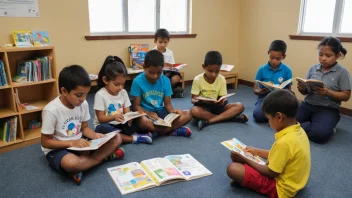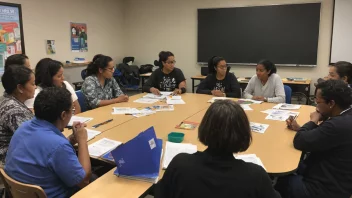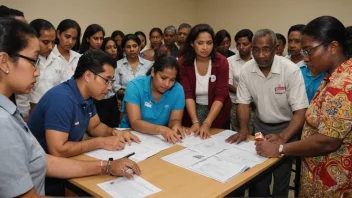In a world where religious intolerance continues to fuel conflict and division, interfaith efforts emerge as a beacon of hope and understanding. The growing recognition of the importance of dialogue among different faiths has led to numerous initiatives aimed at fostering mutual respect and cooperation. These interfaith movements not only promote peace but also highlight the shared values that transcend individual beliefs. This article delves into the significance of interfaith efforts in combating religious intolerance, explores successful initiatives, and provides guidance on how individuals can contribute to this vital cause.
The Importance of Interfaith Dialogue
Interfaith dialogue serves as a platform for individuals from diverse religious backgrounds to come together, share their beliefs, and engage in meaningful conversations. This exchange fosters empathy and helps dismantle stereotypes that often lead to intolerance. By recognizing the common threads that unite various faiths, interfaith dialogue encourages a culture of understanding and respect.
Building Bridges Through Understanding
One of the most significant benefits of interfaith efforts is the opportunity to build bridges across communities. When individuals from different religions participate in discussions, they often discover shared values such as compassion, justice, and the importance of community. These shared principles can help create a sense of solidarity, reducing the likelihood of conflict.
Promoting Peaceful Coexistence
Interfaith initiatives contribute to peaceful coexistence by addressing misconceptions and prejudices. Through educational programs, workshops, and community events, these efforts aim to dispel myths surrounding different religions. When people understand the beliefs and practices of others, they are less likely to resort to intolerance or violence.
Successful Interfaith Initiatives
Across the globe, numerous interfaith initiatives have made significant strides in promoting religious tolerance. Here are a few noteworthy examples:
The Parliament of the World’s Religions
Established in 1893, the Parliament of the World’s Religions is one of the oldest and most recognized interfaith organizations. It brings together representatives from diverse religious traditions to discuss pressing global issues. The Parliament has played a crucial role in promoting peace and understanding by fostering dialogue among faith leaders and communities.
The Interfaith Youth Core
The Interfaith Youth Core (IFYC) is a grassroots organization dedicated to empowering young people to engage in interfaith cooperation. Through service projects and educational programs, IFYC encourages youth to work together, regardless of their religious backgrounds, to address social issues. This initiative not only promotes tolerance but also cultivates a generation of leaders committed to fostering peace.
The United Nations Alliance of Civilizations
The United Nations Alliance of Civilizations (UNAOC) is a global initiative aimed at bridging divides among cultures and religions. It works to promote intercultural dialogue and understanding through various programs and projects. By emphasizing the importance of cooperation, UNAOC seeks to reduce tensions and foster a more inclusive world.
How Individuals Can Get Involved
While interfaith efforts are often spearheaded by organizations, individuals play a crucial role in fostering tolerance and understanding within their communities. Here are some ways to get involved:
Participate in Local Interfaith Events
Many communities host interfaith dialogues, discussions, and events. Participating in these gatherings is an excellent way to learn about different religions and meet individuals from diverse backgrounds. Engaging in conversations can help dispel misconceptions and build relationships based on mutual respect.
Educate Yourself and Others
Knowledge is a powerful tool in combating intolerance. Take the time to learn about various religions and their beliefs. Share this knowledge with friends, family, and your community. Hosting discussions or workshops on religious tolerance can foster a deeper understanding among peers.
Volunteer for Interfaith Organizations
Many interfaith organizations rely on volunteers to carry out their missions. Consider offering your time and skills to support interfaith initiatives in your area. Volunteering not only contributes to the cause but also provides opportunities to connect with like-minded individuals.
Challenges Facing Interfaith Efforts
Despite the progress made through interfaith initiatives, challenges remain. Misunderstandings, cultural differences, and historical grievances can create barriers to dialogue. Additionally, the rise of extremist ideologies can further exacerbate tensions between religious communities. Addressing these challenges requires ongoing commitment and collaboration among individuals and organizations.
The Role of Media in Shaping Perceptions
Media plays a crucial role in shaping public perceptions of different religions. Biased reporting can perpetuate stereotypes and fuel intolerance. It is essential to support media outlets that promote constructive dialogue and portray diverse religious communities accurately. Individuals can advocate for responsible journalism and hold media accountable for their portrayals of religious issues.
Conclusion
Interfaith efforts serve as a vital tool in combating religious intolerance, fostering understanding, and promoting peaceful coexistence. By engaging in dialogue, educating ourselves and others, and participating in community initiatives, we can contribute to a more tolerant and compassionate world. As we work together across faiths, we can build a future where diversity is celebrated, and religious differences are embraced as a source of strength rather than division. The journey toward religious tolerance is ongoing, but through collective action and commitment, we can make a meaningful difference.
